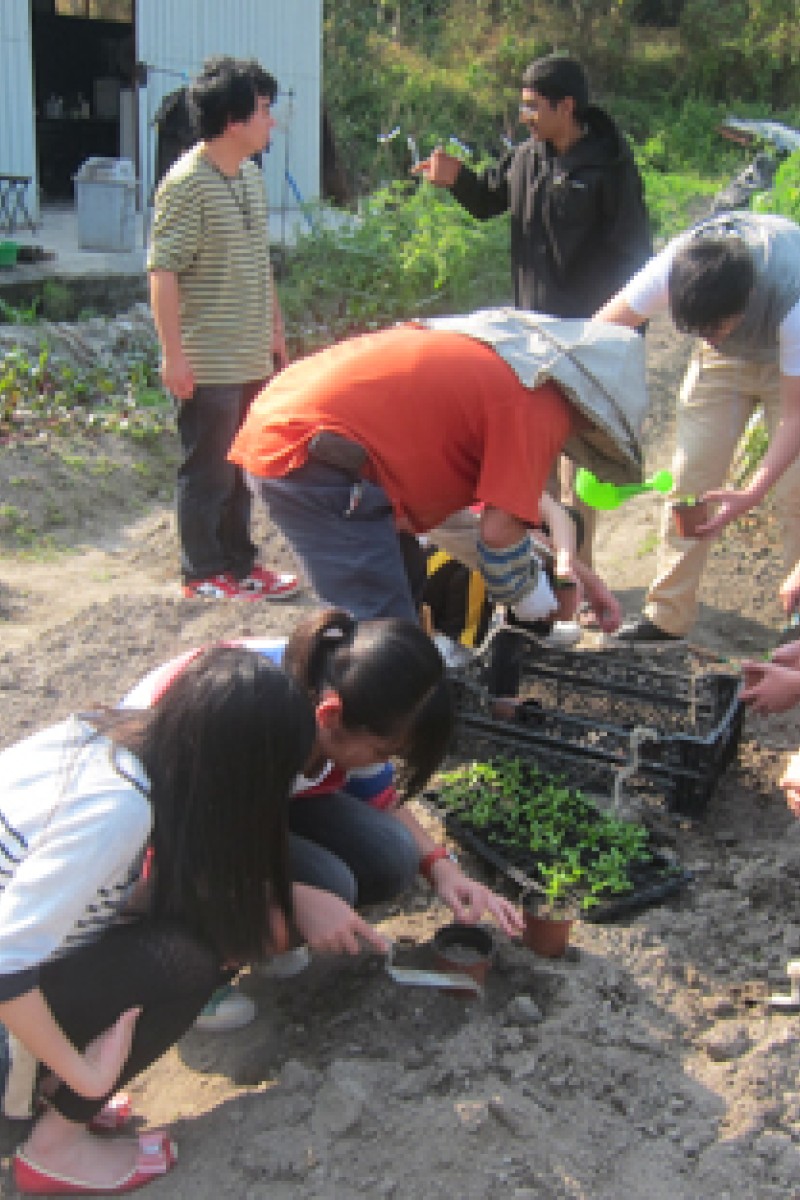
Waste Not, Want Not: New respect for energy
Last Saturday, teams from Young Post's "Waste Not, Want Not" project visited Fruitful Organic Farm in Yuen Long
 Students learned just how much work is required to grow food.
Students learned just how much work is required to grow food.When they arrived at the farm, the students met the owner, Paul Kwok, who likes to be called Uncle Paul. He explained to the teams the principles of organic farming and his experiences of running the farm. Kwok's beliefs extend to the farm's infrastructure: the "conference room" where he gave his talk is a big tent with classroom chairs, and he built the toilets himself, incorporating a sophisticated drainage system.
Wilson Yan, from TWGHs Yau Tze Tin Memorial College, learned that organic farming is even more demanding than regular farming. "Organic farming requires much more attention to the crops, and it is also a test of patience. The fruits and vegetables can take twice as long to grow," without the aid of chemicals.
Next came a tour of the farm, and they saw where different crops were grown: green vegetables, tomatoes, potatoes, red peppers and strawberries. Then it was time for the team members to get their hands dirty - literally, by turning the soil and planting crops.
Digging under the scorching sun was exhausting but rewarding. It gave the team members an idea of how much work goes into producing food, how precious it is, and how it should be treasured. Shahul Hameed Nuaim, from Islamic Kasim Tuet Memorial College, found the practical advice useful. "I learned a lot from my visit, from what type of food waste we could use as fertilizers, to how to protect our crops from weeds and bugs. We even tried to till the land. Afterwards I was completely exhausted. It was an important reminder of why food waste must be reduced."
Joyce Chan, from Shung Tak Catholic English College, had visited an organic farm before, but said planting crops herself was eye-opening. "There are only three workers at the farm, so the food they produce is really hard-won," she said. "We should always treasure our food and not waste it."
At the end of the workshop, Uncle Paul gave the students potted plants as souvenirs. Hopefully they'll grow green peppers if they're properly looked after.
You may not have time to get involved with our project but that doesn't mean you can't do your part to reduce food waste. Join us in our Green Ribbon Campaign and sign the pledge to limit your own food waste!
Read about the workshops:
- Visit to South East New Territories (SENT) Landfill
- Bread Run with Feeding Hong Kong to collect leftover pastries
- Visit to Hong Kong Science Park to see technology that put leftover food to new uses
- Visit to the Kowloon Bay Waste Recycling Centre to see how they turn food waste into compost
- Learn how the chefs at the Hyatt Regency Shatin use leftovers to create new dishes
- See what some schools are already doing with their food waste
